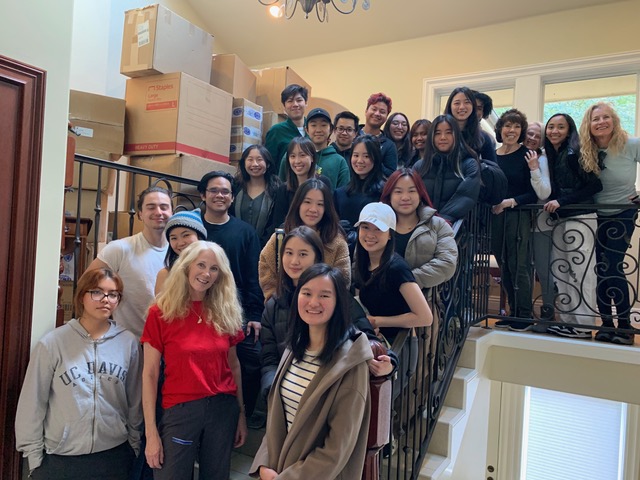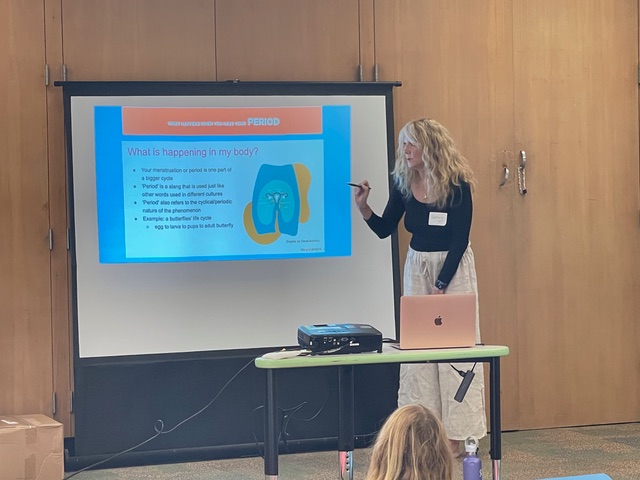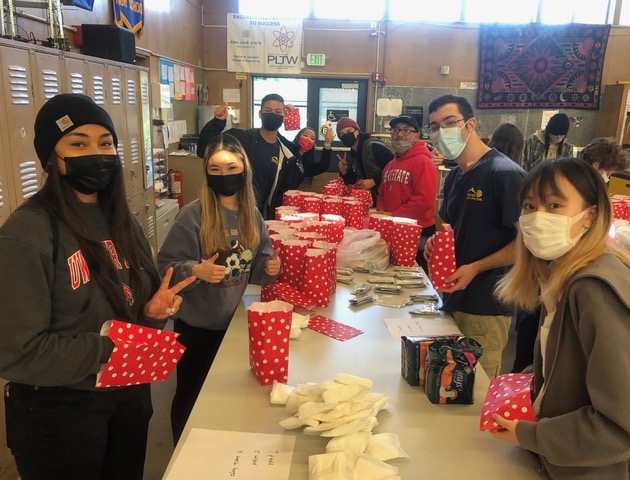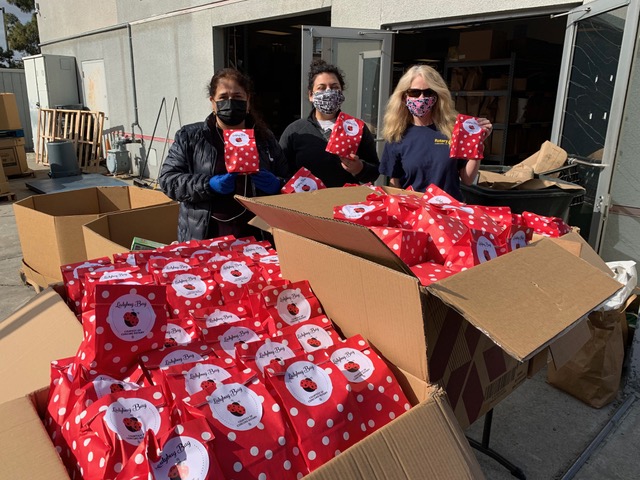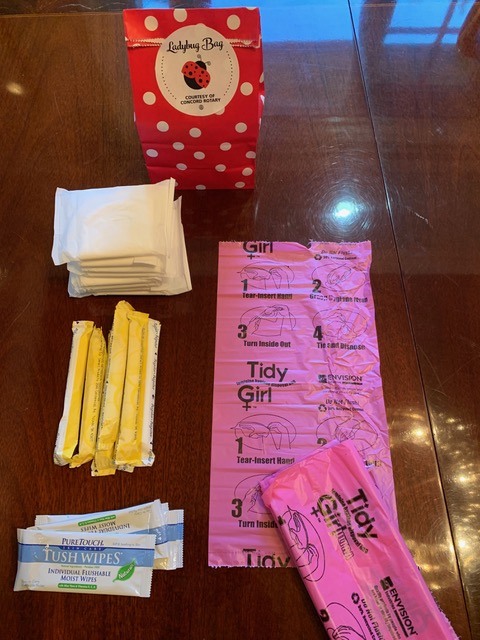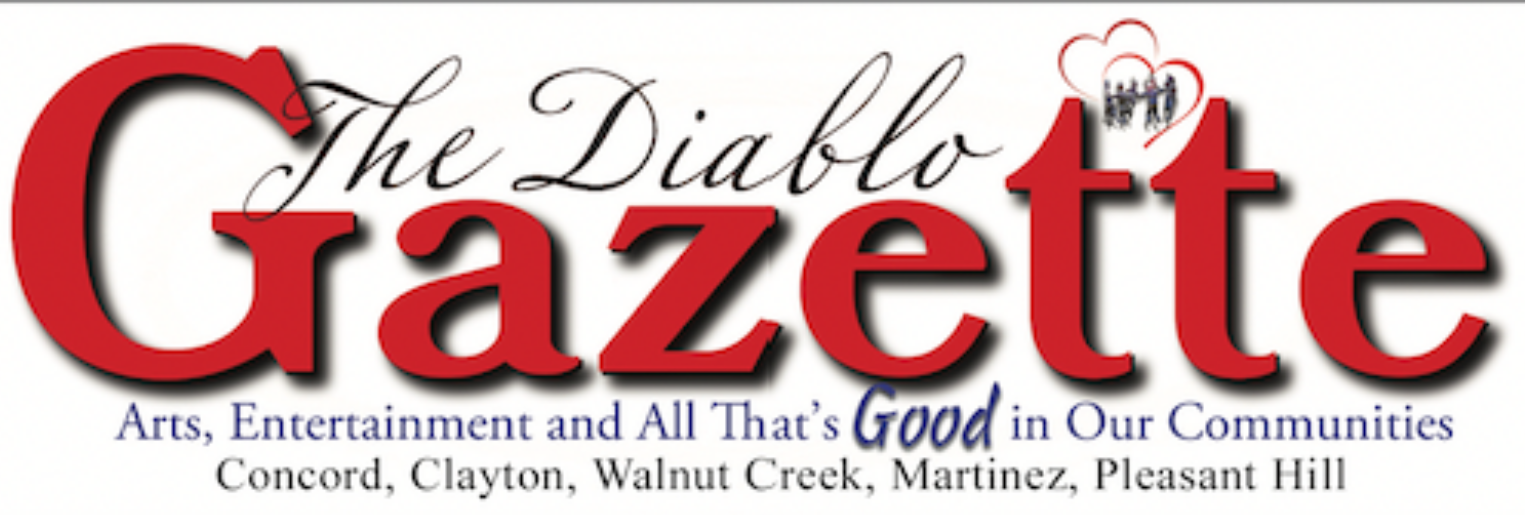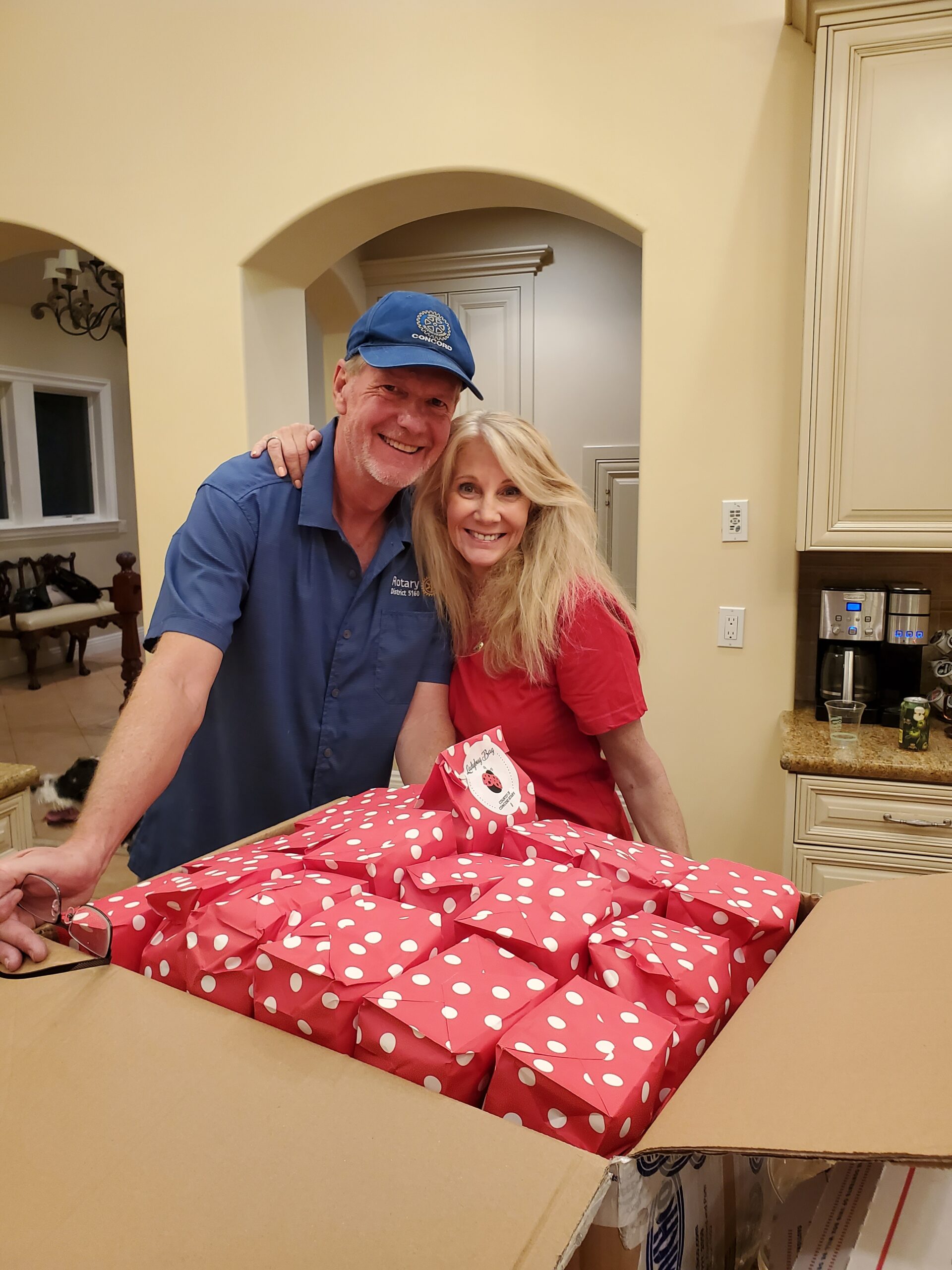
After spending most of adult life working internationally on humanitarian projects and more recently having completed a five-year project in Honduras providing clean water and bathrooms to 34 schools, I became aware of the issues surrounding sanitary supplies for women and girls. It never crossed my mind that I would discover a similar problem right here in Concord.
In a meeting with students from Diablo Valley College, I learned a new phrase, “Period Poverty,” a term used to describe a lack of access to proper menstrual products and the education needed to use them effectively. The main cause is the lack of affordability and accessibility of products, coupled with cultural stigma and other societal factors. I was shocked that such a problem existed in our county.
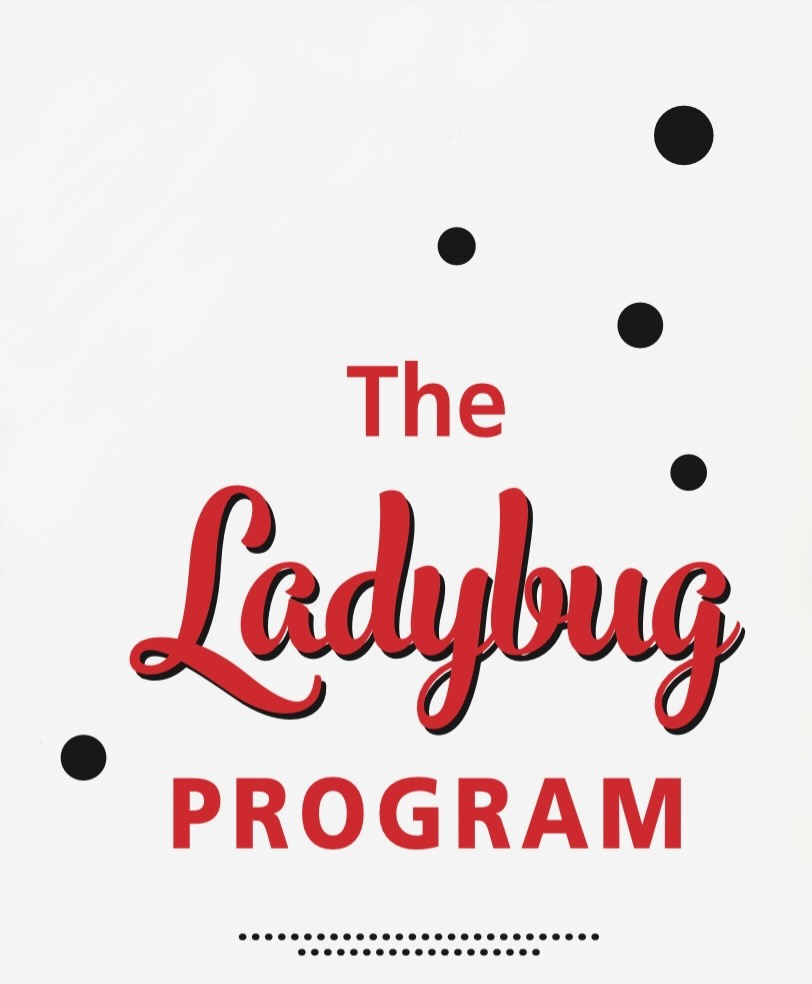
Stephanie Prescott, a member of Concord Rotary Club, a mother of five children herself, after learning about this problem, decided to do something about it. She started calling County Health Services, which led her to schools, and outreach programs. She quickly realized there was a huge issue in the county.
Gathering a few of her friends, they brainstormed as to what could be done. She would make it her business to help women and girls in need by providing them with the necessary products. With a $1,000 donation, she began buying essential supplies and holding house parties where they would pack and then deliver sanitary kits to Concord Adult Homeless Shelter, the Monument Crisis Center and Shelter Inc. The Lady Bug project was born. I interviewed this bubbly, energetic and charming lady.
“Why Lady Bug?”
“It was the name we used for my granddaughter, and my team of lady helpers liked it, so “Ladybuggers.” We decided to purchase red polka dot paper bags and make discrete Ladybug bags which we fill with assorted products. They look cute. Presentation is so important. We are dealing with such a taboo subject and I wanted to make it easy to be around to remove the intimidating aspects of it. That also meant educating people. In the beginning I just supplied essential items, but after talking with providers and teachers, I developed a series of simple educational flyers in English and Spanish which are now included.”
“When did you actually start doing this?”
“Three years ago, in 2021. I knew there was a national problem but learned that here in Contra Costa one in four women and girls cannot afford menstrual products. I had no idea where my idea would take me. Now I deliver products to 21 centers in Concord, Pleasant Hill, Martinez, Walnut Creek, Antioch and even Richmond. I am building relationships, and the response is wonderful: Concord Library, Contra Costa Family Justice Center-Concord, Hope Solutions and Winter Night’s Shelter, the Trinity Center Walnut Creek and many more.”
“And how many bags have you delivered so far?”
“A little over 15,000.”
“That’s amazing. But how did you fund this project?”
“I started applying for small grants and writing begging letters. I received a huge amount of free products from the U by KOTEX/Alliance for Period Supplies which is wonderful. The Period Project has been very generous and donated many pallets of supplies to the Lady Bug Program. You cannot move inside my home just now. I’m using every available space for storage. Concord Rotary Club also supported my efforts with a grant.”
The Period Project is a National non-profit organization based in South Carolina whose stated purpose is to eradicate period poverty.
“What attracted you to this work?”
“Education has always been a passion of mine. Before I started my family, I taught Human Sexuality to middle school students. My degree is in Community Health Education and Human Sexuality was part of it.
“Where would you like the project to go?”
“That’s a great question. I know we are meeting a real need, but there are two parts to it. There is a sense that in supplying shelters, it is almost a bottomless pit. I get so frustrated at times. Staff there are so overwhelmed with providing beds, food, clothing etc. there is no time for education. There should be county or state funding, a budget line item specifically for feminine hygiene products. We are simply providing essential products but without a long-term solution. That needs to change. Schools on the other hand, are a different issue.”
The Ladybug Program actively serves many Title 1 schools in our county. Stephanie has made presentations on menstruation management to a few schools. She states that while their response is gratifying, she is concerned with the large amount of incorrect and unknown information regarding the physiology of puberty and healthy menstruation among our budding teenagers.
Sadly, there seems to be a fear in the public school system that learning about the human body, simply physiology, equates to encouraging teenagers to engage in sexual behaviors.

“Before I make a presentation, I like to meet with the parents and show them in detail what will be involved. They get to see the full PowerPoint, and so far, I have not received a single negative response.”
The State passed AB 367 in 2021 ‘Menstrual Equity for All.’ It requires all public schools in California to provide free menstrual products in their restrooms, but it is not fully implemented.
Schools have to apply for funding. If a student needs supplies, she must approach a teacher or the custodian, which can be embarrassing. Others will miss school completely because of lack of access to supplies.
“I find this unacceptable. I am an advocate for having dispensing machines (dispensing free products) in school bathrooms, family shelters, libraries, and community centers. But meanwhile, through the Ladybug project, we will continue what we started, until the State catches up.”
“And what about continued funding?”
“It’s difficult, as you can imagine. Right now, my annual expenses are almost $20,000. Female menstrual products are expensive. Unless you know of some wealthy donors, I will just have to keep looking for grants.”
There are people in our communities doing extraordinary things and Stephanie Prescott is one of them — and she is your neighbor.
